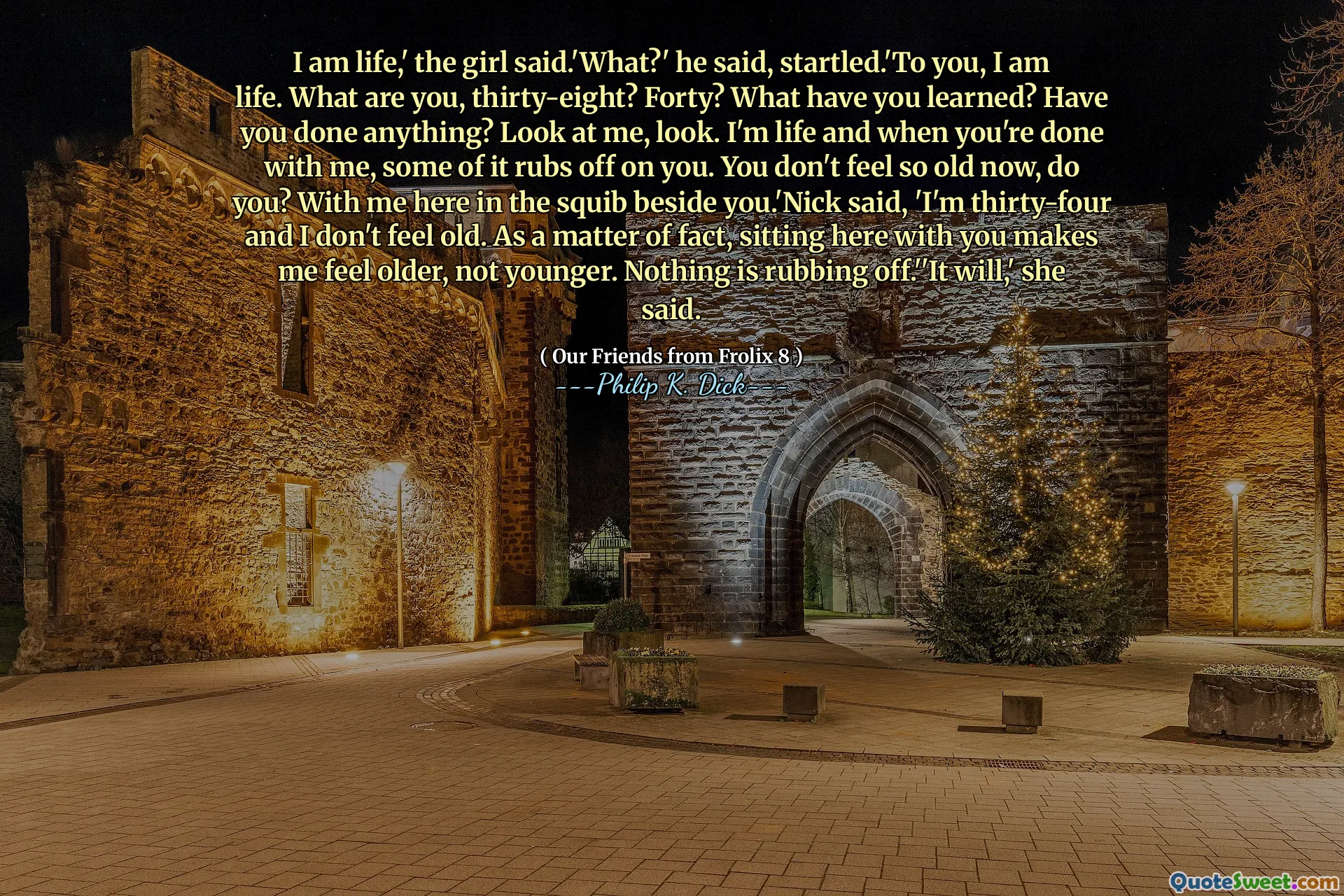
I am life,' the girl said.'What?' he said, startled.'To you, I am life. What are you, thirty-eight? Forty? What have you learned? Have you done anything? Look at me, look. I'm life and when you're done with me, some of it rubs off on you. You don't feel so old now, do you? With me here in the squib beside you.'Nick said, 'I'm thirty-four and I don't feel old. As a matter of fact, sitting here with you makes me feel older, not younger. Nothing is rubbing off.''It will,' she said.
In Philip K. Dick's "Our Friends from Frolix 8," a conversation unfolds between a girl and a man, revealing contrasting perspectives on life and age. The girl claims to embody life itself, challenging the man to reflect on his experiences and age. She believes that her vitality can rejuvenate him, implying that youth and potential are contagious, and that being in her presence could spark something within him. The dialogue captures a moment of existential introspection, highlighting the disparity between their ages and outlooks.
Nick, the man, responds by asserting that he doesn’t feel old despite being thirty-four. Instead, he suggests that the girl is making him feel older and that her energy is not having the intended effect. This exchange underscores themes of vitality versus stagnation and the search for meaningful connections. Through this interaction, Dick explores how one's engagement with youth and life can provoke feelings of both inspiration and discomfort, reflecting complex human emotions in the face of aging.


